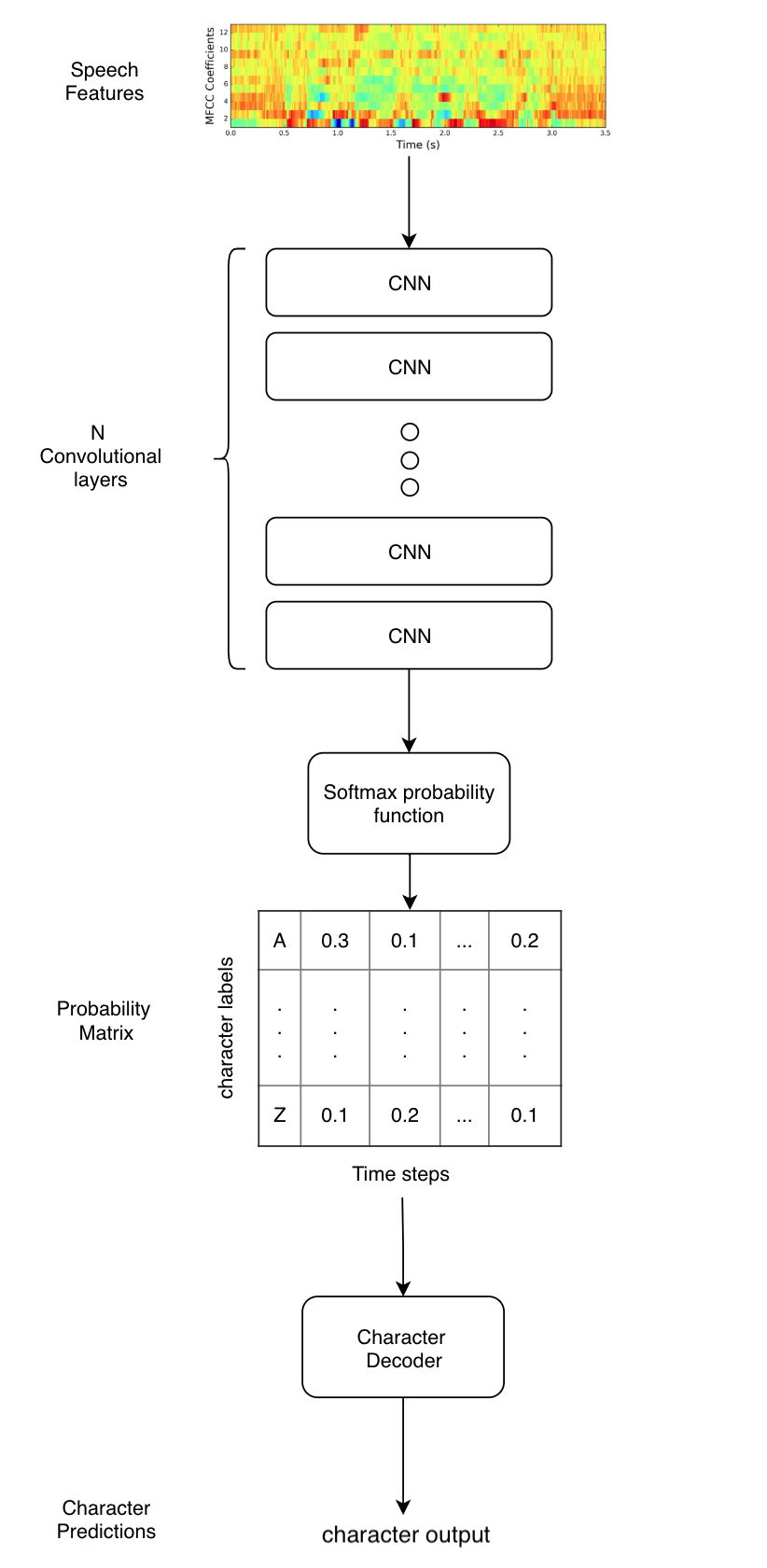LearnedVector / Wav2letter
Programming Languages
Labels
Projects that are alternatives of or similar to Wav2letter
Wav2Letter Speech Recognition with Pytorch
A Simple, straight forward, easy to read implementation of Wav2Letter, a speech recognition model from Facebooks AI Research (FAIR) paper. You can see most of the architecture in the Wav2Letter directory.
The next iteration of Wav2Letter can be found in this paper. This paper uses Gated Convnets instead of normal Convnets.
The Google Speech Command Example.ipynb notebook contains an example of this implementation.
Differences
- Uses CTC Loss
- Uses Greedy Decoder
TODO
- Implement Train, Validation, Test sets
- Test on larger speech data
- Implement AutoSegCriterion
- Implement Beam Search Decoder
- Use KenLM Langauge Model in Decoder
- Use larger datasets
- Add Gated ConvNets
Getting Started
Requirements
pip install -r requirements.txt
Make sure you are using pytorch-nightly (version 1.0 alpha). This has the CTC_Loss loss function we need.
Smoke Test
smoke_test.py contains a quick test to see if everything is working
python smoke_test.py
This will train a model on randomly generated inputs and target generated data. If everyhing is working correctly, expect to see outputs of the predicted and target labels. Of course expect the outputs to be garbage.
Data
For an initial test, I used the Google Speech Command Dataset. This is a simple to use lightweight dataset for testing model performance.
Instructions to download data
- Download the dataset.
- Create a
./speech_datadirectory at root of this project. - Unzip the google speech data. Should be named
speech_commands_v0.01.
Prepare data
data.py contains scripts to process google speech command audio data into features compatible with Wav2Letter.
python Wav2Letter/data.py
This will process the google speech commands audio data into 13 mfcc features with a max framelength of 250 (these are short audio clips). Anything less will be padded with zeros. Target data will be integer encoded and also padded to have the same length. Final outputs are numpy arrays saved as x.npy and y.npy in the ./speech_data directory.
Train
train.py has the code to run the training. Example would be.
python train.py --batch_size=256 --epochs=1000
Contributions
Pull Requests are accepted! I would love some help to knock out the Todo's. Email me at [email protected] for any questions.

